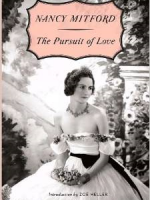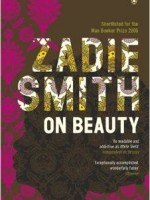(Published by Penguin Books Ltd)
 |
The month of May is traditionally associated with all sorts of images: the beginnings of summer; Maypoles, those symbols of phallic fertility; and on May 1st, international workers day. That Orwell was an ardent socialist is not in doubt and so many of his characters trundle along bearing the yoke of worker oppression. Many of them, from Winston Smith in 1984 to Boxer in Animal Farm, are models of the downtrodden but none more so than George Bowling. Where the central character in Coming Up For Air differs from so many of Orwell’s characters, but has in common with Winston, is in his unflagging desire to escape.
In his teens, his own brother runs away (and is never heard of again) mirroring what George does later in the story. Middle-aged, overweight and married to the insipid Hilda, his days are spent on the road as an insurance salesman. His unfulfilled life contrasts with the impending doom of war. One minute he’s on a commuter train admiring the sun on the passing terrace roofs, when once again the shadow of war looms. “Below us you could see the roofs of the houses stretching on and on, the little red roofs where the bombs are going to drop . Funny how we keep on thinking about bombs. Of course there’s no question that it’s coming soon. You can tell how close it is by the cheer-up stuff they write about it in the newspapers.”
This subtle juxtaposition of the domestic and military dominates the book and the anticipatory gloom of war offsets Bowling’s dull life. Despite the mundanity, which stretches to self-pity and an inflated sense of himself, George Bowling is not just all talk. He has a plan. If war is coming, he wants to see his childhood town, Lower Binfield once more. It’s not merely regressive thinking but offers a balm for his uneasy soul in troubled times. He puts in for time off work but lies to Hilda, afraid to tell her of his plans and of the seventeen quid he won on a horse that will fund the trip.
Memory is a very potent force in the book and Orwell uses it as a narrative tool for almost half the book to paint a picture of Lower Binfield. That is, the Lower Binfield of George Bowling’s memory, and therefore of the past. He recalls lazy days fishing with his friends and his discovery of a secret pond full of massive carp. Tellingly, he says: “If you gave me the choice of having any woman you care to name or catching a ten-pound carp, the carp would win every time”. Bowling is not dysfunctional, he has just realised that looking back, a pastoral, solitary life would probably have suited him better. But then hindsight is distorted hugely in the book. When he eventually returns to his hometown, much has chanced. Some things, in the name of progress and industry, but attitudes have changed and the idyll he had constructed in his imagination is long gone.
Orwell is probably unrivalled in his gift of characterisation. He has an acerbic pithiness when it comes to description and he uses this to great effect in summing up peripheral characters in a sentence, as in this wonderful line about the local sweet shop owner: “Mother Wheeler was a dirty old witch and people suspected her of sucking the bull’s-eyes and putting them back in the bottle, though this was never proved.” The owner of the Sixpenny Bizarre appears in just one scene in the book but is indelibly printed in our minds forever: “He was an ugly, stiff-built little devil, the sort of cock-sparrow type of a man who sticks his chest out and puts his hands under his coat-tails – the type that’d be a sergeant-major only they aren’t tall enough”.
Politics bubble away beneath the surface of Coming Up For Air and Orwell’s own very strong views emerge occasionally. He is dismissive of Capitalism, especially when speaking of his father’s struggling grain business where his competitors were “tapeworms who were eating him alive”. The descriptions of the lives and living conditions of workers with little prospects are vivid and depressing. In those times, working hard all your life did not guarantee reprieve from destitution.
It is Orwell’s genius that he can construct heroes of the most humdrum characters, for that is what Bowling is. A literary Travis Bickle, tired of a life of injustice and of being constantly trodden on and overlooked. George finds solace in eventually escaping physically but all his life he has escaped mentally through books and reading. There are some wonderful literary moments in the book from Bowling’s experiences in the Lower Binfield Reading Circle (one of the earliest bookclubs perhaps?) to his name-checking of Maupassant, HG Wells, Joseph Conrad and a short story by DH Lawrence, which he sums up as: “It puzzled me a lot. I couldn’t make out what it was all about, and yet it left me with a vague feeling that I’d like to read some others like it.”
My favourite line in the entire book is not decorous, but brilliantly captures what it’s like to first discover and consume books. “There I was, in a job where there was less than nothing to do and a whole row of books staring me in the face. Naturally, I started to read them from end to end, with, at the beginning, about as much attempt to discriminate as a pig working its way through a pail of garbage.”



